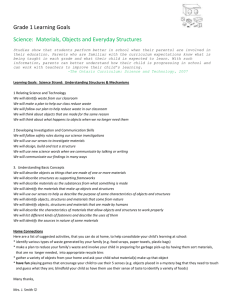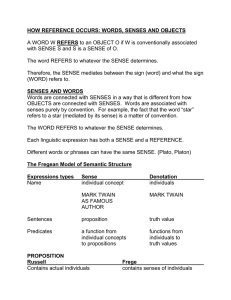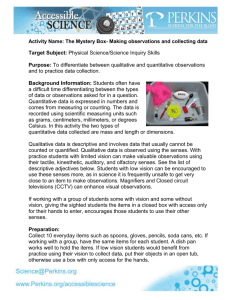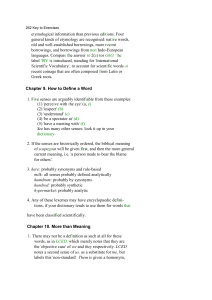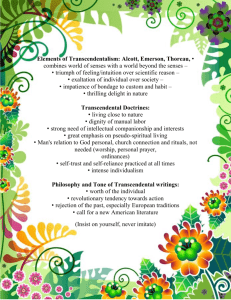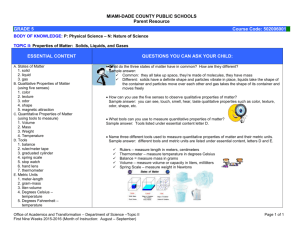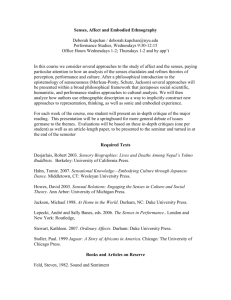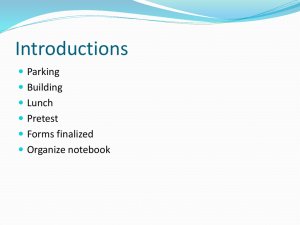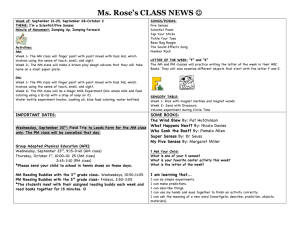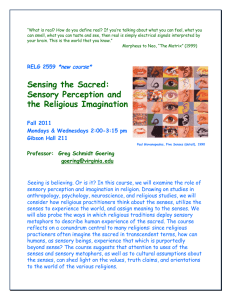Grade 8- Study Guide
advertisement
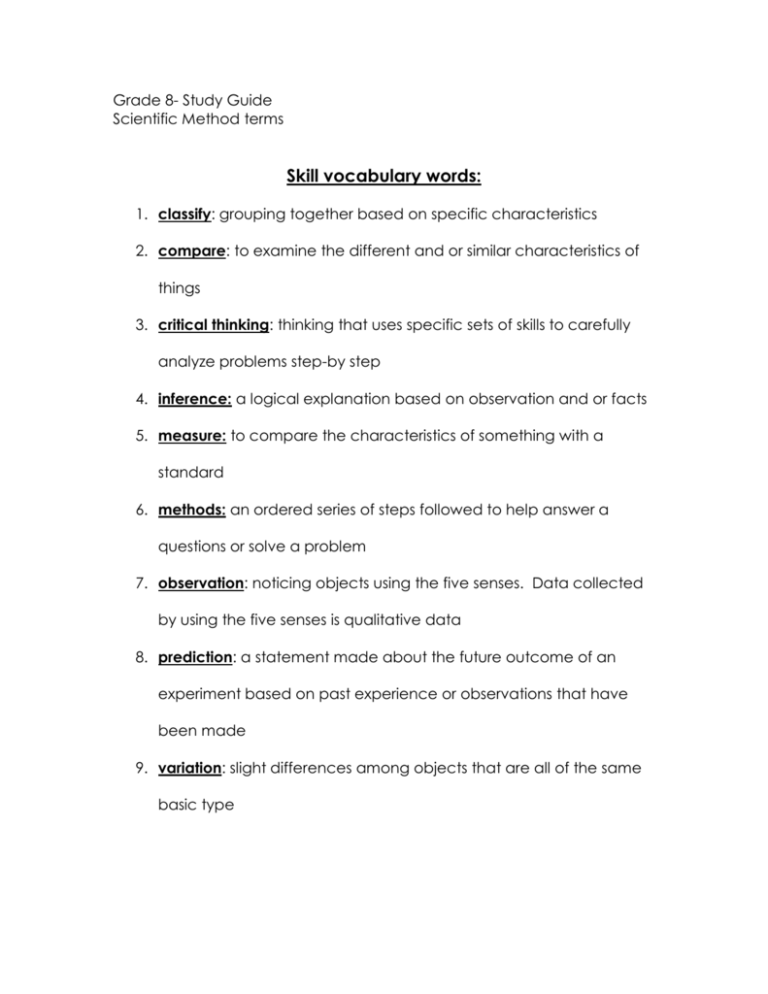
Grade 8- Study Guide Scientific Method terms Skill vocabulary words: 1. classify: grouping together based on specific characteristics 2. compare: to examine the different and or similar characteristics of things 3. critical thinking: thinking that uses specific sets of skills to carefully analyze problems step-by step 4. inference: a logical explanation based on observation and or facts 5. measure: to compare the characteristics of something with a standard 6. methods: an ordered series of steps followed to help answer a questions or solve a problem 7. observation: noticing objects using the five senses. Data collected by using the five senses is qualitative data 8. prediction: a statement made about the future outcome of an experiment based on past experience or observations that have been made 9. variation: slight differences among objects that are all of the same basic type Scientific method vocabulary terms 10. control: the group or subject used as a standard for comparison in an experiment 11. data: information, measurements and materials gathered from observations used to help answer questions 12. experimental error: incorrect data taken during an experiment that may result from a variety of causes 13. experiment: a test using observations and controlled variables to discover answers to questions and or to validate a hypothesis or solve a problem 14. procedure: an ordered series of steps one follows to answer a question or solve a problem 15. qualitative data: data based observable characteristics that can be collected using the fives senses 16. quantitative data: data based on measurable characteristics such as mass, volume, length, and quantity 17. repeated trials: experimental tests done more than once 18. replication: repeated trials on more than one subject in experimental tests 19. variable: something that can affect as system being examined, a factor that may change in an experiment 20. independent variable: a factor that can be changed in an experiment ; “you change it” 21. dependent variable: a factor that responds to changes in an experiment; “it changed” ………………………………………………………………………………. Basic vocabulary terms 22. nature: the entire physical universe, earth, and beyond 23. science: the study of nature and the physical world using the methods 24. scientist: a person who “does” something 25. scientific law: a pattern in nature known as a rule 26. scientific methods; a process of critical thinking that uses observations and experiments to testable predictions about the physical universe 27. scientific theory: a explanation for generalized patterns in nature supported by much scientific evidence 28. –logy: the study of

